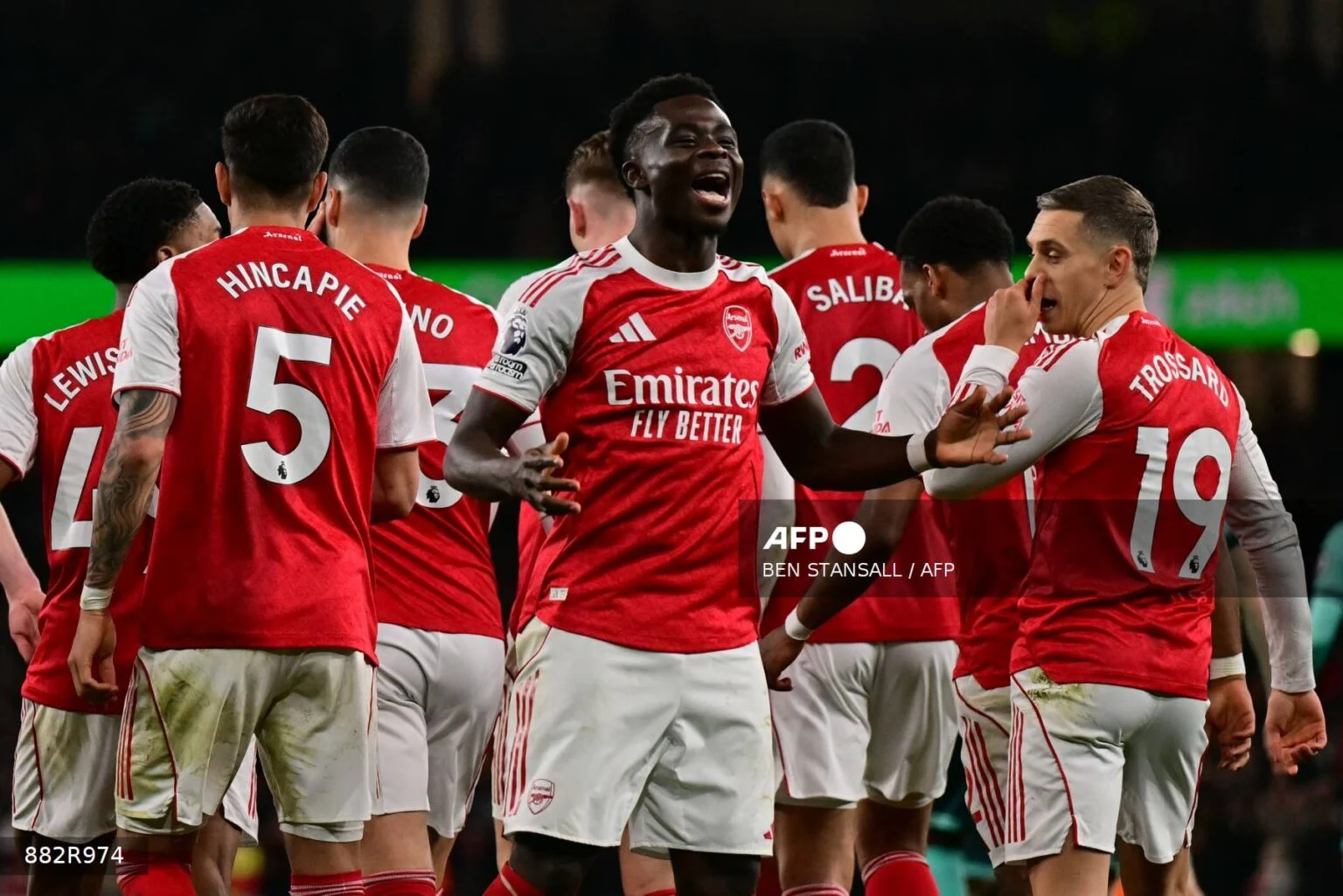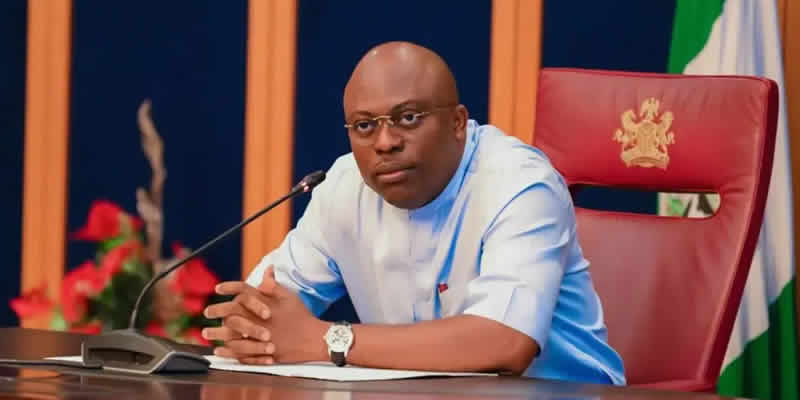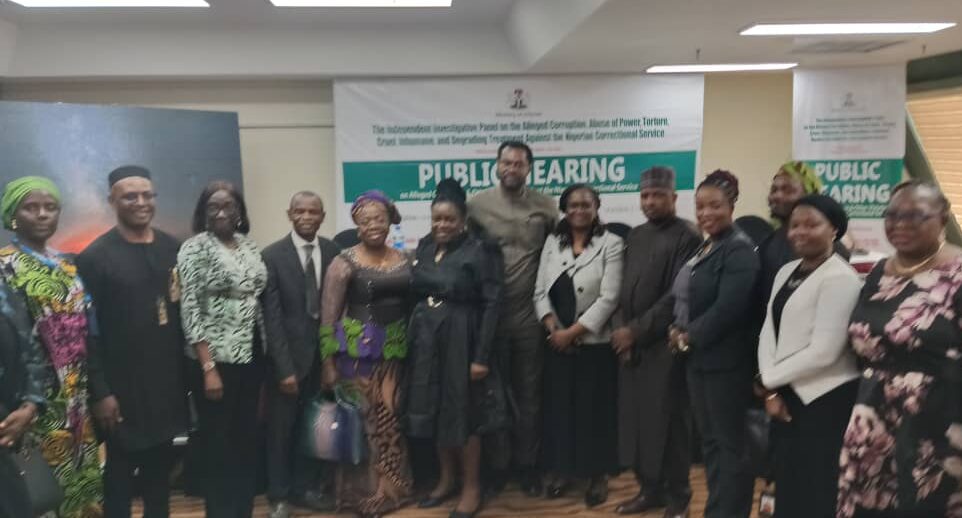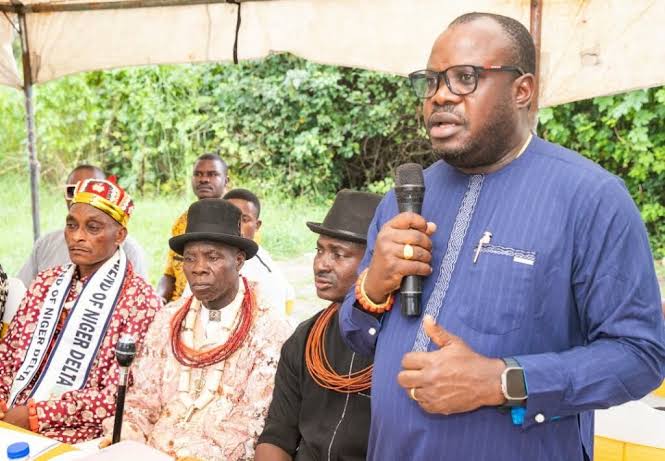By: Goodluck E. Adubazi – Abuja.
The Independent Investigative Panel on Alleged Corruption, Abuse of Power, Torture, and Cruel and Degrading Treatment within the Nigerian Correctional Service (NCoS) commenced its third and final public hearing on Monday, August 11, 2025, in Abuja. The panel, established under the Ministry of Interior, continues its inquiry into serious allegations plaguing the NCoS, particularly concerning the treatment of children and young persons in custody.
Panel Chairperson, Dr. Magdalene Ajani, who also serves as Permanent Secretary in the Ministry of Interior, reaffirmed the government’s commitment to justice, accountability, and systemic reform within the correctional system.
“This is not merely an administrative exercise,” Dr. Ajani said in her opening address. “It is a demonstration of the government’s resolve to uphold human rights, transparency, and institutional integrity.”
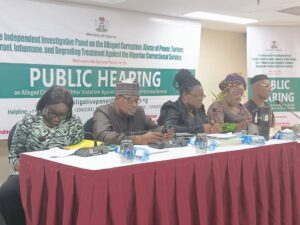
She emphasized that while the correctional service includes thousands of dedicated officers, the panel’s work aims to ensure that misconduct by a few does not undermine the credibility of the entire system.
Panel’s Mandate and Focus
According to Dr. Ajani, the panel’s mandate includes:
1. Investigating allegations of corruption, abuse of power, and human rights violations.
2. Identifying systemic weaknesses that allow misconduct to thrive.
3. Recommending actionable reforms for accountability and institutional improvement.
The third hearing will focus on thematic issues and build upon findings from previous sessions held in December 2024 and March 2025. Dr. Uju Agomoh, Secretary of the Panel, outlined the methodology adopted, which includes document reviews, field visits, stakeholder consultations, and data analysis.
She emphasized that the panel has received full cooperation from the NCoS during its inspection of correctional and Borstal facilities across the country.
Key Cases and Systemic Issues Highlighted
Among the notable issues discussed are two high-profile cases, including that of Mr. Idris, popularly known as Bobrisky, whose custodial experience was part of the panel’s inquiry. Other cases involve allegations of threats, extortion, and age falsification in warrants for minors.
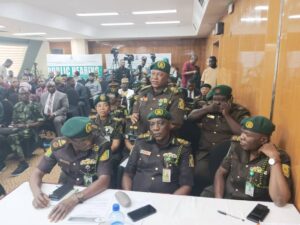
Panel investigations have identified multiple violations of the Nigerian Correctional Service Act 2019, especially Section 2 (1) (a-d), and standing orders relating to the treatment of juveniles. Panel Secretary Agomoh emphasized the need for the NCoS to submit detailed status reports for all Borstal institutions, particularly Ilorin, to clarify their current operational mandates and compliance with human rights standards.
Disturbing Findings on Treatment of Minors
Consultant, Dr. Iyke Ezeugo, shared alarming observations from field visits to Borstal institutions across several states, including Abeokuta. He reported the presence of minors in adult correctional facilities and noted systemic issues surrounding false age declarations in warrants.
“We found children as young as 10 detained alongside adults as old as 43,” Dr. Ezeugo stated. “Some children reported never appearing in court despite the presence of warrants.”
He added that the lack of vocational training, poor infrastructure, and absence of qualified personnel in many Borstal facilities compound the problem.
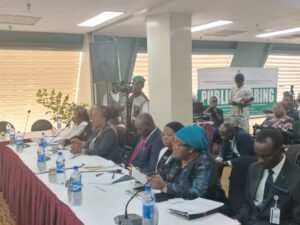
In some cases, children were placed in these institutions by vigilante groups or police without proper legal procedure. Dr. Ezeugo described instances in which threats were issued to minors to prevent them from revealing their true ages, as well as manipulation of legal documents.
NCoS Responds to Allegations
Representatives of the Nigerian Correctional Service, including Idris and Abdullahi Shehu, acknowledged the challenges. They pointed to inadequate Borstal infrastructure as a reason some minors are kept in adult facilities.
Currently, only three Borstal institutions are functional—located in Kaduna, Ilorin, and Abeokuta—with capacities ranging between 250 and 288 inmates. Overcrowding remains a pressing issue.
“Sometimes minors are admitted into adult facilities due to the absence of nearby Borstal institutions,” they said, citing logistical and funding constraints.
Recommendations and Way Forward
The panel has issued several directives aimed at reforming the correctional system. These include:
Immediate mapping of state-managed juvenile detention facilities.
Classification and operational review of all Borstal institutions.
Improved oversight and data collection, particularly concerning informal detention centers.
Enhanced inter-agency collaboration, especially at the state level.
Budgetary provisions for infrastructure and staffing of juvenile centers.
The panel also called for a stronger emphasis on non-custodial measures and diversion programs for juvenile offenders, in line with international best practices.
As the panel continues its final public hearing through August 14, 2025, stakeholders from civil society, government agencies, and the media have been urged to engage constructively.
“The true measure of a just society,” Dr. Ajani said, “is not only how it treats the law-abiding, but how it treats those in its custody.”
Standard Times Nigeria, which covered the first day of the Investigative hearings, gathered that, The findings and recommendations from this panel are expected to shape future correctional reforms in Nigeria, particularly those affecting the country’s most vulnerable populations: children and young persons.



